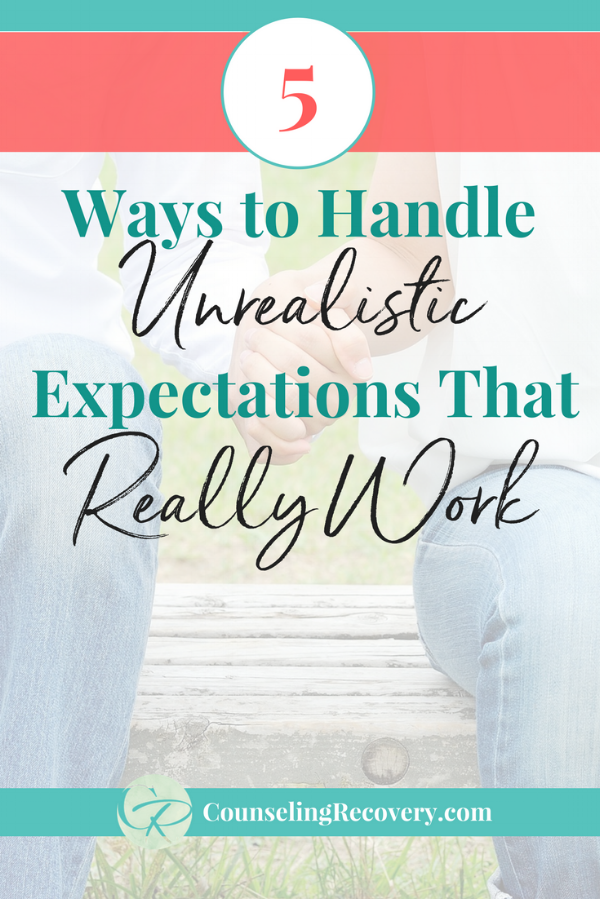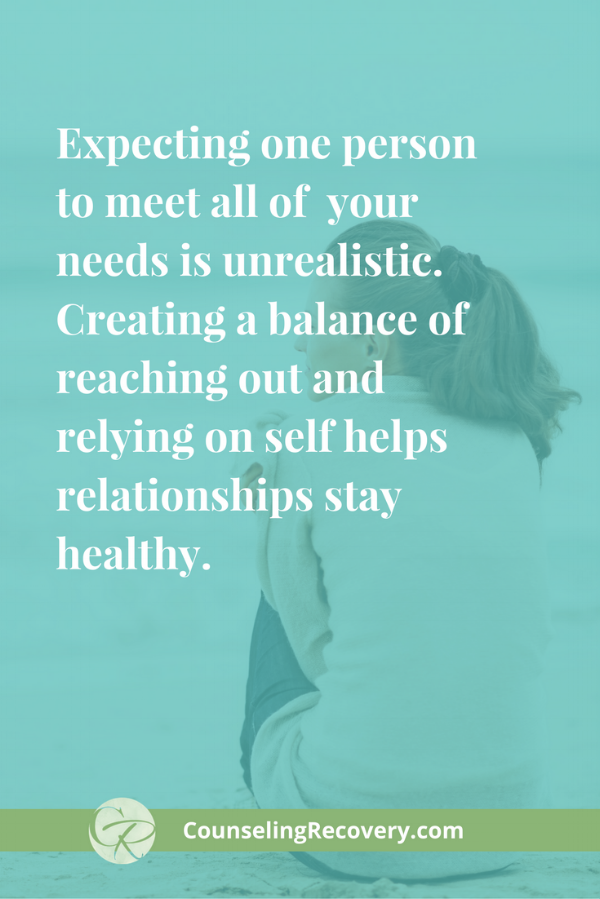Understanding Relationship Expectations
Having expectations is a normal part of relationships.
You expect parents to be supportive, spouses to be faithful and friends to be loyal. But unspoken expectations cause the most trouble because expecting others to know what you need without telling them is a set up.
An argument starts. Your brain interprets what's being said and reacts. You make assumptions based on what is happening in the moment. Often, those assumptions are connected to past experiences which have nothing to do with the present. That explains why everyone reacts so differently.
Melissa hates when her boyfriend runs late. She screams that she's never a priority.
As a kid, Melissa's dad traveled a lot. She could never count on him to show up for important events.
The intensity of Melissa's reaction stems from her dad not showing up for her, not just her partner being late. That feeling of not being important becomes an emotional trigger in her relationship. At that point her assumptions dictate her behavior.
There is a 12 step saying that "expectations are premeditated resentments." You assume something but don't check it out. You stuff the hurt and say nothing. Eventually it becomes a resentment that creates distance in the relationship. This blog will clarify how expectations work and what you can do when they don't.
Grab my free 20 Things to Do When You're Angry Cheatsheet below!
1. Be Honest About Your Expectations
Clear expectations are openly discussed to improve communication and closeness.
Unspoken expectations lead to resentment and misunderstandings.
For example, expecting a partner to know what you want or how you feel without telling them creates frustration. Communication breaks down because in making assumptions, you react to what you think is happening verse clarifying it.
Unrealistic expectations are hidden and often connected to old beliefs. In your family, were expectations clear and reasonable or did they just expect you to know what they were thinking? If expectations weren't clear, they create problems. Here are some examples.
2. Identify Unrealistic Expectations
Expecting one person to fulfill all (or most) of your needs.
Expecting people to change who they are for you.
Expecting someone to give what you give to them.
Expecting someone to know what you want without telling them.
Having unrealistic expectations can be a symptom of codependency. Expecting people to meet most of your needs often triggers resentment. It creates an imbalance. Sure you can ask for what you want, but no one is obligated to say yes.
Codependency happens when you focus more on what other people are doing rather than on yourself. Click here to read Are You Codependent?
3. Decide If Expectations Are Realistic
The first step in handling expectations is being aware of what they are. Then decide if they're realistic or not. How can you know the difference?
Well, getting feedback from trusted friends helps. If you are constantly disappointed by others your expectations are probably too high. Here's a tip to get you started.
Are you expecting people to be different than who they are? Are you expecting them to be like you? Instead here are some tips to avoid getting into that same old cycle of hurt.
4. How to Make Expectations Work
Healthy relationships are built on open communication. When you have needs, let your partner know what they are. Communicate them clearly. Avoid mind-reading or expecting others to do for you what you do for them.
Be honest about your expectations.
Realize that people don't change unless they want to.
Talk openly about expectations beforehand to avoid problems later.
Don't make your partner responsible for all your needs.
Communicate your needs directly.
Expecting others to give the same as you do.
Don't assume that if someone doesn't change, they don't love you.
Check out all assumptions.
5. Be Your Own Solution
Sometimes we expect more from others because we don't know how to fulfill our own needs. Taking care of yourself empowers you in relationships because you understand that others can't always be there. Lowering expectations lowers stress. Healthy relationships expect others to be exactly who they are - no more no less.
Be clear on what you need and if the answer is no, find another alternative. No one person can meet all of your needs. The goal is to create a balance of self-reliance and support which keeps relationships healthy.
How do you handle expectations in your relationships? Please leave a comment or share this with a friend.


